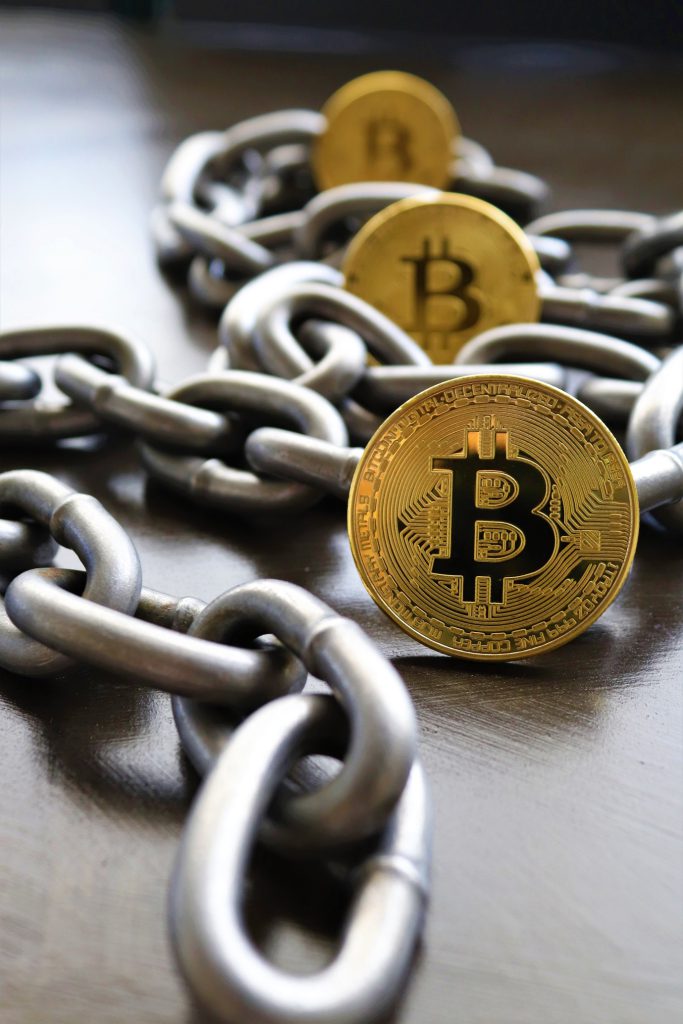1. Introduction to Cryptocurrency Storage
Cryptocurrency has emerged as a popular form of digital currency, offering individuals greater financial autonomy and security. As the value of cryptocurrencies continues to rise, so does the importance of securely storing and protecting these digital assets. However, the decentralized nature of cryptocurrencies and the prevalence of hacking attempts pose significant challenges to the safety of holdings. In this article, we will explore the various aspects of safely storing and securing your cryptocurrency, including understanding the risks involved, choosing the right wallet, implementing best practices, exploring offline storage options, monitoring and updating your storage, and the procedures for recovering lost or stolen cryptocurrency. By following these guidelines, you can ensure the safety and peace of mind for your digital wealth.
1. Introduction to Cryptocurrency Storage
1.1 What is Cryptocurrency Storage?
Cryptocurrency storage refers to the methods and tools used to protect and safeguard your digital assets, such as Bitcoin, Ethereum, or any other type of cryptocurrency. Unlike traditional physical currencies, cryptocurrencies exist solely in digital form, making their storage and security a crucial consideration for crypto investors.
1.2 Importance of Secure Cryptocurrency Storage
Ensuring secure cryptocurrency storage is of paramount importance due to the decentralized and anonymous nature of cryptocurrencies. Without proper storage, your digital assets can be vulnerable to hacking, theft, or loss. By implementing secure storage practices, you can protect your investments and reduce the potential risks associated with storing cryptocurrency.
2. Understanding the Risks of Cryptocurrency Storage
2.1 Common Security Threats in Cryptocurrency Storage
When it comes to storing cryptocurrency, various security threats lurk in the digital realm. These threats include hacking attempts, phishing attacks, malware, and even physical theft. Cybercriminals are constantly devising new strategies to exploit vulnerabilities and gain unauthorized access to digital wallets or private keys.
2.2 Implications of Inadequate Security Measures
If your cryptocurrency storage lacks adequate security measures, the consequences can be severe. You may experience the loss of your entire crypto holdings, financial theft, or even identity theft. Additionally, poor security practices can erode trust in the cryptocurrency ecosystem as a whole. It is crucial to prioritize and implement robust security measures to protect your digital assets.
3. Choosing the Right Wallet for Your Cryptocurrency
3.1 Types of Cryptocurrency Wallets
When it comes to storing your cryptocurrency, you have a variety of wallet options available. These include hardware wallets, software wallets, paper wallets, and online wallets. Each type has its own advantages and disadvantages in terms of convenience, accessibility, and security levels.
3.2 Factors to Consider when Selecting a Wallet
When choosing a cryptocurrency wallet, it is essential to consider factors such as security features, ease of use, compatibility with different cryptocurrencies, and the reputation of the wallet provider. You should also evaluate the wallet’s track record, user reviews, and community support to ensure a reliable and trusted solution for your storage needs.
4. Best Practices for Safe Cryptocurrency Storage
4.1 Creating Strong and Unique Passwords
To enhance the security of your cryptocurrency storage, it is vital to create strong and unique passwords. Avoid common phrases, use a combination of uppercase and lowercase letters, include numbers and symbols, and refrain from reusing passwords across different platforms.
4.2 Enabling Two-Factor Authentication
Enabling two-factor authentication adds an extra layer of security to your cryptocurrency wallets. By requiring a second verification step, such as a unique code sent to your mobile device, you can significantly reduce the risk of unauthorized access even if your password is compromised.
4.3 Regularly Updating Wallet and Software
Keeping your cryptocurrency wallet and associated software up-to-date is crucial for maintaining security. Developers often release updates and patches to fix vulnerabilities and strengthen security measures. By regularly updating your wallet, you can mitigate potential risks posed by outdated software versions.
4.4 Backing up Your Wallet
Backing up your cryptocurrency wallet is an essential practice to prevent irreversible loss of funds. Consider storing backups in multiple secure locations, such as encrypted external hard drives or offline devices like hardware wallets. Regularly test the restoration process to ensure your backups are reliable and accessible when needed.
By following these best practices, you can increase the safety and security of your cryptocurrency storage, allowing you to enjoy the benefits of digital assets with peace of mind. Remember, in the exciting world of cryptocurrencies, it is better to be safe than sorry!
5. Two-Factor Authentication and Other Security Measures
5.1 Understanding Two-Factor Authentication
Keeping your cryptocurrency secure is essential, and one of the best ways to enhance your security is through two-factor authentication (2FA). With 2FA, you add an extra layer of protection to your accounts by requiring two forms of verification to access them. Typically, this involves entering your password and providing a unique code generated by an authentication app on your smartphone. This ensures that even if someone obtains your password, they won’t be able to access your cryptocurrency without the second factor.
5.2 Additional Security Measures for Cryptocurrency Storage
Beyond two-factor authentication, there are other security measures you should consider implementing. These include using strong and unique passwords, enabling email and SMS notifications for account activity, and regularly updating your software and devices. It’s also essential to be cautious of phishing attempts and avoid clicking on suspicious links or downloading unknown files. Remember, your cryptocurrency security is only as strong as your weakest link, so take every precaution to safeguard your assets.
6. Offline Storage Options: Cold Wallets and Paper Wallets
6.1 What are Cold Wallets?
Cold wallets are a popular offline storage option for cryptocurrency. These are physical devices, often resembling USB drives, that store your private keys offline, away from potential vulnerabilities of online storage. By keeping your private keys offline, you significantly reduce the risk of hacking or malware attacks.
6.2 How to Safely Use Cold Wallets
To use a cold wallet safely, you need to follow a few best practices. First, always purchase a cold wallet directly from the manufacturer or an authorized retailer to avoid counterfeit or tampered devices. Next, set up your cold wallet using a secure computer or device that is free from malware. Finally, ensure you have a backup of your wallet’s recovery seed phrase and store it in a safe location separate from the physical wallet. By taking these precautions, you can enjoy the benefits of offline storage with peace of mind.
6.3 Paper Wallets: An Offline Storage Alternative
If you prefer a low-tech solution, paper wallets provide an alternative offline storage method. Essentially, a paper wallet is a physical printout containing your public address and private key. By generating and printing your paper wallet offline, you can securely store your cryptocurrency without the risk of an online attack. However, it’s crucial to keep your paper wallet in a safe and protected place to avoid loss or damage.
7. Regularly Updating and Monitoring Your Cryptocurrency Storage
7.1 Importance of Regular Updates
Keeping your cryptocurrency storage updated is crucial for maintaining security. Developers frequently release updates to address vulnerabilities and strengthen the overall security of their platforms. By regularly updating your cryptocurrency wallets and associated software, you ensure that you have the latest security patches and improvements, reducing the risk of potential breaches.
7.2 Monitoring Account Activity and Transaction History
It’s vital to stay vigilant and monitor the activity in your cryptocurrency accounts regularly. Keep an eye out for any suspicious transactions, unrecognized addresses, or unauthorized access attempts. By promptly identifying and addressing any signs of suspicious activity, you can take the necessary steps to prevent potential losses and secure your funds. Additionally, regularly reviewing your transaction history ensures accuracy and helps you keep track of your overall cryptocurrency portfolio.
8. Recovering Lost or Stolen Cryptocurrency: Tips and Procedures
8.1 Steps to Take when Cryptocurrency is Lost or Stolen
If you find yourself in the unfortunate situation of lost or stolen cryptocurrency, it’s important to act quickly. Start by reporting the incident to the appropriate authorities, as they can assist in investigations. Next, reach out to the cryptocurrency exchange or wallet provider where your funds were stored and provide them with all relevant information. They may have processes in place to assist with recovery, depending on the circumstances. Be prepared to provide any documentation or evidence necessary to support your case.
8.2 Working with Authorities and Recovery Services
Recovering lost or stolen cryptocurrency can be a complex and challenging process. In some cases, seeking the help of professional recovery services specializing in cryptocurrency may be necessary. These services have experience and expertise in handling such situations and can guide you through the recovery process. However, be cautious and do thorough research before engaging any recovery service to ensure their legitimacy and credentials.
Remember, while it’s essential to store and secure your cryptocurrency properly, it’s equally crucial to stay informed about the latest security practices and remain vigilant. By implementing robust security measures, regularly updating your storage solutions, and being proactive in monitoring your accounts, you can help protect your cryptocurrency from potential threats and ensure a safe and secure investment experience.In conclusion, safeguarding your cryptocurrency is of utmost importance in today’s digital landscape. By understanding the risks involved, choosing a secure wallet, implementing best practices, exploring offline storage options, and regularly monitoring and updating your storage, you can significantly reduce the chances of unauthorized access or loss. Remember to stay vigilant and take proactive measures to protect your digital assets. By following these recommended guidelines, you can confidently navigate the world of cryptocurrency storage and enjoy the benefits of this revolutionary form of currency.
FAQ
1. How do I choose the right cryptocurrency wallet?
When selecting a cryptocurrency wallet, consider factors such as security features, user-friendliness, compatibility with your preferred cryptocurrencies, and reputation. Hardware wallets are generally considered more secure than software wallets, but it ultimately depends on your specific needs and preferences.
2. What are the risks of storing cryptocurrency online?
Storing cryptocurrency online, or in hot wallets, exposes your holdings to potential hacking attempts or security breaches. Online storage is connected to the internet, making it vulnerable to cyber attacks. It is recommended to limit the amount of cryptocurrency stored online and to employ additional security measures, such as two-factor authentication.
3. Can I recover lost or stolen cryptocurrency?
Recovering lost or stolen cryptocurrency can be challenging, but not impossible. It is crucial to act swiftly by reporting the incident to relevant authorities and reaching out to recovery services, if available. However, prevention is always better than recovery, so it is vital to implement robust security measures to minimize the risk of loss or theft.

AdHang.com is the No.1 agency for digital marketing in Nigeria and the first Internet public enlightenment agency in Africa. AdHang has everything needed to achieve your digital marketing objectives and goals. From strategic digital marketing, a tactical approach to employing advanced digital marketing tools and technologies, using seasoned marketers with decades of marketing communications experience.









Comments